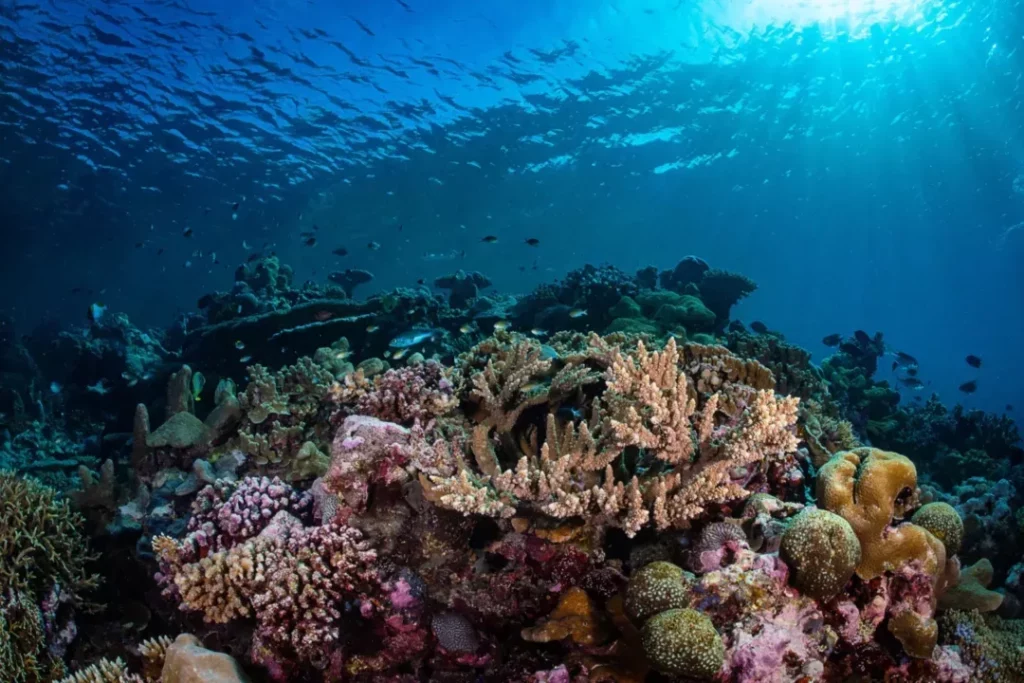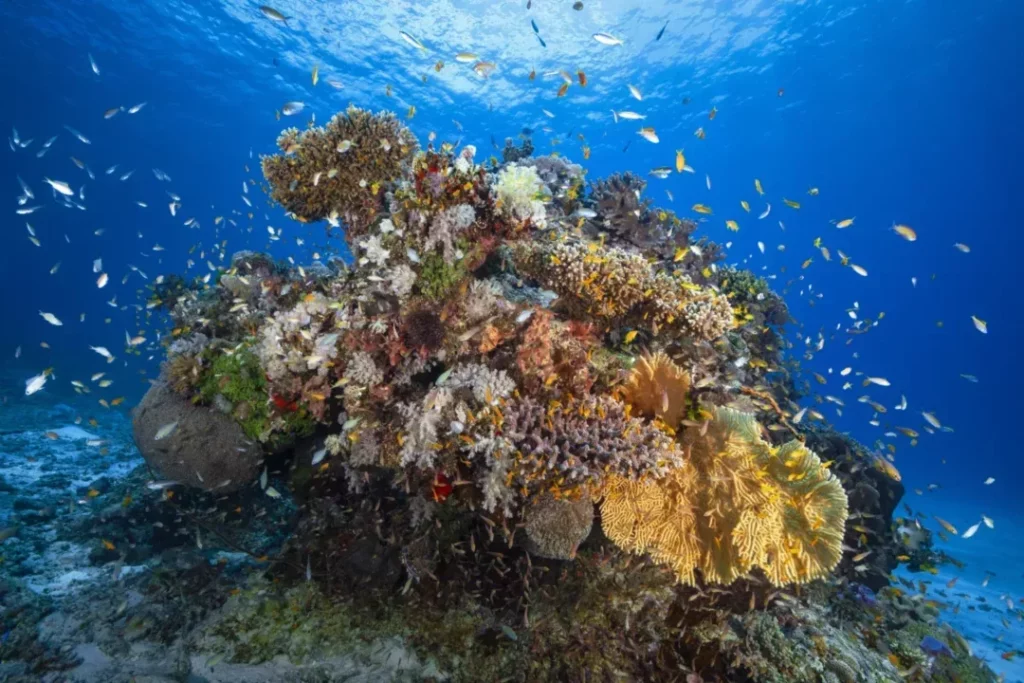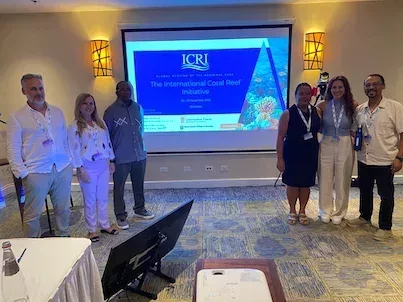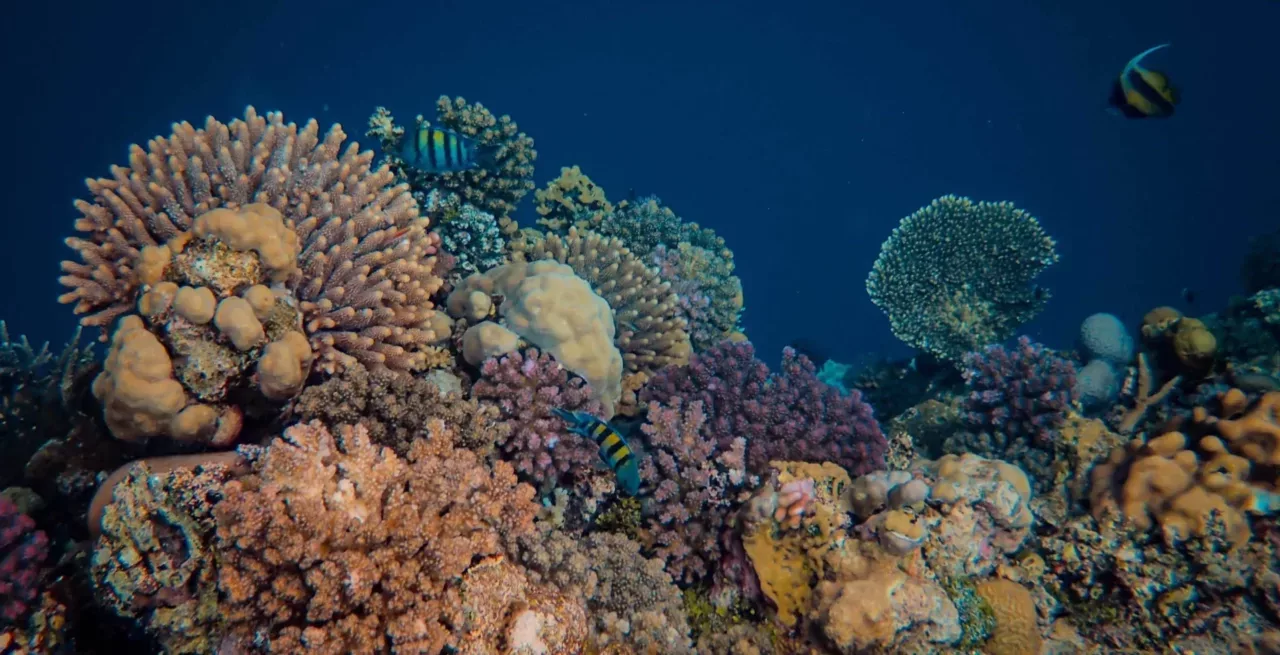The Regional Seas Programme (RSP) was launched in 1974 in the wake of the 1972 UN Conference on the Human Environment held in Stockholm. It remains one of UNEP’s most significant achievements and operates in 18 regions, with most regions adopting a regional action plan underpinned by a legal framework in the form of a regional convention with associated protocols on specific issues. Commonly, they are referred to as Regional Seas Conventions and Action Plans (RSCAPs). UNEP provides overall coordination and facilitation and in so doing connects the programme to the United Nations Environment Assembly (UNEA).
The Twenty-third Global Meeting of Regional Seas took place in Bridgetown Barbados from 20 – 23 November 2023. The UNEP Regional Seas Programme hosted the Regional Seas Convention and Action Plans executive secretaries and coordinators, Government of Barbados representative from the Ministry of Environment, UNEP colleagues, Barbados UNRCO, French Ambassador to Barbados, Basel Rotterdam Stockholm Convention Secretariat and INC Secretariat representatives, GRID-Arendal, OECS and GEF colleagues, FAO representatives, the French Biodiversity Agency, ICRI and GFCR colleagues and lastly the French Ministry of Environment representative.

The meeting provided a platform for adoption of Global strategies and built upon the outcomes of the 22nd annual meeting held from 25 – 28 May 2022 in Mahe, Seychelles. Discussions were centred around the following themes:
- Common action to implement Regional Seas Strategic Directions 2022-2025
- Regional Seas Conventions and Action Plans implementation of the Kunming-Montreal Biodiversity Framework
- Ocean Governance (BBNJ, Plastics Treaty, Financing)
- Small Islands Developing States and Least Developing Countries
- UNEA-6
- 2025 UN Ocean Conference (Online presentation from Poivre d’Arvor, President Macron’s Special Envoy to the United Nations Ocean Conference in 2025)
In addition, on 22nd November, ICRI held a Side event, “Turning the Tide for Coral Reefs; the Importance of Regional Activities” and welcomed almost 40 participants from the regional seas and associated partners. The side event emphasised the strong collaboration between ICRI and the UNEP regional seas and the pivotable role the regions hold for the preservation of coral reefs on a global scale, from supporting monitoring activities at the national scale, to influencing policy and support decision makers within the international process.

Coral reefs exist in 10 out of the 18 UNEP regional seas areas, whilst six regional seas are members of ICRI:
- Coordinating Body on the Seas of East Asia (COBSEA)
- Regional Organization for the Conservation of the Environment of the Red Sea and Gulf of Aden (PERSGA)
- Secretariat of the Pacific Regional Environment Programme (SPREP)
- South Asia Co-operative Environment Programme (SACEP)
- The Nairobi Convention
- UNEP Caribbean Environment Programme (CEP)

In addition, the Global Coral Reef Monitoring Network (GCRMN), an operational network of ICRI, aims to provide the best available scientific information on the status and trends of coral reef ecosystems for their conservation and management on national, regional, and global scales. The GCRMN works closely with seven of the UNEP regional seas, including CEP, PERSGA, ROPME, SPREP, COBSEA, SACEP and the Nairobi Convention, they form the engine rooms of the GCRMN, with established relationships and reporting mechanisms to national stakeholders.
During the side event, ICRI presented updates on the recent launch of the Coral reef Breakthrough and the next release of a GCRMN regional report from the Pacific. In addition, representatives were encouraged to play a key role in helping the GCRMN to gather data (on benthic cover, including hard coral cover) to produce the upcoming Status of Coral Reefs of the World Report. Lastly, four regional seas detailed the activities undertaken for coral reefs and included SPREP, The Nairobi Convention, UNEP-Caribbean and COBSEA. Please find a link to the presentations below.
- The Pacific Regional Action Plan, SPREP
- Juney Ward, Ecosystem and Biodiversity Officer
- The Regional Coral Reef Task Force, Nairobi Convention
- Dixon Waruinge, Co-Ordinator Nairobi Convention
- The CAR-GCRMN Steering Committee, UNEP-CAR/RCU
- Susana Perera Valderrama, Program Manager, SPAW Sub-Programme Cartagena Convention Secretariat
- COBSEA activities related to coral reef management
- Mahesh Pradhan, Co-Ordinator, COBSEA

ICRI continues to strengthen existing relationships and forge new partnerships with the UNEP regional seas moving forward as we navigate the challenges that lie ahead for coral reefs and associated ecosystems. Many of the future opportunities discussed during the side event included:
- Ensure the representation of coral reefs on regional and global platforms through collaborations between ICRI and the Regional Seas in hosting side events at upcoming international events.
- Play a key role in aiding the GCRMN to gather coral reef data (on benthic cover, including hard coral cover) to produce the next upcoming global report – “Status of Coral Reefs of the World”.
- Support ICRI for the release and dissemination of the regional reports (Pacific in 2024, Caribbean in 2025, East Asia in 2026, Eastern Tropical Pacific in 2024, PERSGA 2025 and Western Indian Ocean 2025 – focusing on red list of ecosystems for coral reefs, for example).

ICRI looks forward to the continued partnership with the UNEP regional seas moving forward and would like to thank UNEP for allowing ICRI to host the event with additional support from the Government of Sweden and the Principality of Monaco.


- Secretariat of the Pacific Regional Environment Programme (SPREP)
- UNEP Caribbean Environment Programme
- The Nairobi Convention
- South Asia Co-operative Environment Programme (SACEP)
- Regional Organization for the Conservation of the Environment of the Red Sea and Gulf of Aden (PERSGA)
- Coordinating Body on the Seas of East Asia (COBSEA)

